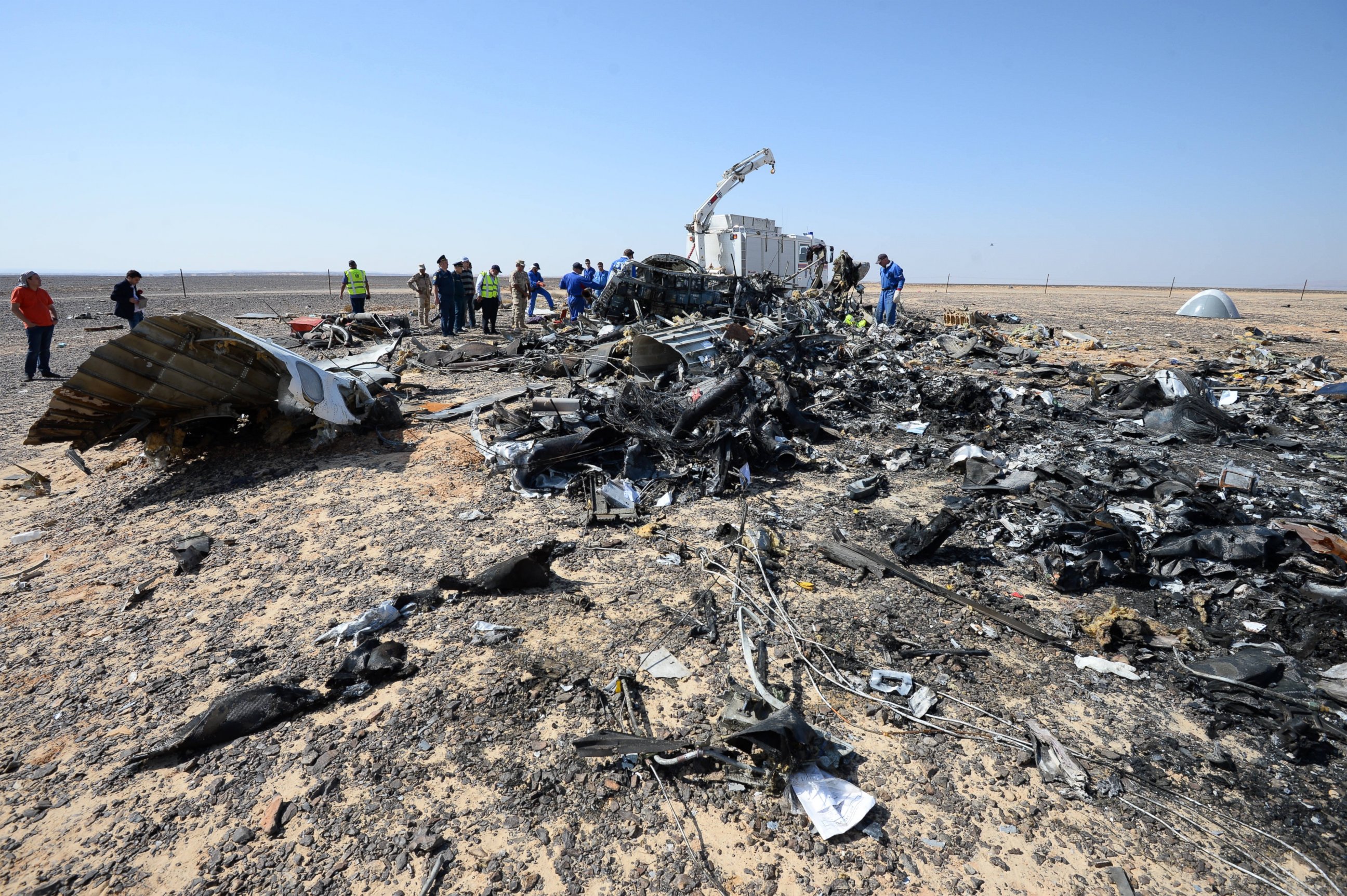Officials Won't Rule Out ISIS Involvement in Russian Plane Crash
The plane's black boxes are still being analyzed.
— -- U.S. officials refused to rule out that ISIS was responsible for bringing down the Metrojet flight in Egypt this weekend, citing a tweet from the terror group that claimed responsibility for the deadly crash.
"It’s unlikely, but I wouldn’t rule it out," U.S. National Intelligence Director James Clapper said when asked whether ISIS had the ability to shoot down an airliner. "We don’t have any direct evidence of any terrorist involvement, yet," Clapper said at the Defense One Summit in Washington, D.C."
Clapper said the group, which the government refers to as ISIL, claimed responsibility for the crash in tweet.
"There is a very aggressive ISIL chapter in the Sinai," he said. "But we really don’t know and I think once the black boxes have been analyzed ... then perhaps we’ll know more."
The head of the U.S. National Counterterrorism Center, Nick Rasmussen, said the intelligence community so far has no information to corroborate any specific nexus to terrorism. But he emphasized that "it's an unfolding" situation.
Today the U.S. Embassy Cairo issued a warning instructing its employees not to travel anywhere in the Sinai Peninsula pending the outcome of the investigation into the crash. The embassy called it a "precautionary measure."
The Russian Metrojet plane mysteriously crashed in the Egyptian desert early Saturday, killing all 224 people on board. The plane's black boxes are still being analyzed.
The head of Russia's Interstate Aviation Committee, the agency investigating the crash, told journalists in Cairo Sunday the plane broke apart midair, but warned that it was "too early to state a cause for the plane's destruction."
But the Russian airliner, Metrojet, is blaming an "external influence" as the cause of the crash.
Alexander Smirnov, deputy general director of Metrojet, said today the crash could not have been caused by a technical fault.
"The only explicable cause can be a mechanical impact on the aircraft," Smirnov said, adding "there is no possible combination of system failures that could lead to the aircraft breaking-up in midair.
"The plane's crew completely lost control over the aircraft as the disaster started to unfold," Smirnov added.

Last week, two senior American officials tasked with addressing the Syria crisis warned Russia that its strong military tactics could backfire.
Gen. John Allen, the outgoing Special Envoy to Counter ISIS, told members of the Senate Foreign Relations Committee that Syrian President Bashar al-Assad is weak and that the Russians are finding he is having trouble taking advantage of their air support.
“What they're discovering relatively quickly is that if they're not part of the political transition, then they're going to be part of the problem, and that problem's going to come home to roost for them,” Allen said.
Anne Patterson, Deputy Secretary for Near East Affairs, also suggested Russia’s actions could draw more terrorists and extremists to the fight.
“I think they'll soon find out that the entire Sunni world is against them," Patterson said. “We have heard from many of our Gulf partners that, in terms of jihadis and extremists, they haven't seen anything yet because they'll be drawn into Syria in even greater numbers to fight against the Russians."



